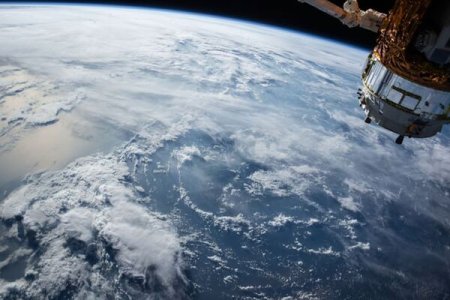
Nigerian govt unveils plans to send the first civilian to space in collaboration with Space Exploration and Research Agency.
In a groundbreaking endeavor, the Nigerian government has unveiled plans to send the country's first civilian to space, marking a significant stride in the nation's pursuit of scientific and technological advancement. This pioneering initiative, spearheaded by the National Space Research and Development Agency (NASRDA), aims to inspire a new generation of Nigerians to embrace careers in science, technology, engineering, and mathematics (STEM) fields.
During a press conference held in Abuja, Dr. Mathew Adepoju, the Director General of NASRDA, disclosed that Nigeria has entered into a Memorandum of Understanding (MoU) with the Space Exploration and Research Agency (SERA) to facilitate this ambitious project. He emphasized that this collaboration signifies a major milestone in Nigeria's 25th anniversary of space exploration, positioning the nation among countries actively engaged in human spaceflight.
"This initiative opens up new avenues for scientific research and technological advancement," Dr. Adepoju remarked, highlighting the potential of this endeavor to foster technological progress and ignite interest in STEM disciplines among Nigerian youth.
The Director General reaffirmed NASRDA's commitment to leveraging space technology for national development and enhancing global competitiveness. He assured that the project would adhere to stringent safety standards and be executed with professionalism, drawing on international expertise and best practices.
While the details of the selection process and timeline for the mission have yet to be revealed, the announcement has already generated immense excitement and interest among Nigerians from various walks of life. Aspiring astronauts, scientists, and space enthusiasts have expressed their eagerness to be part of this historic endeavor, which could pave the way for further Nigerian involvement in space exploration.
However, the ambitious initiative has also faced criticism from some quarters, with concerns raised about the allocation of resources and the prioritization of space exploration over pressing domestic issues. Proponents argue that investing in science and technology is crucial for long-term economic growth and national development.





